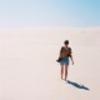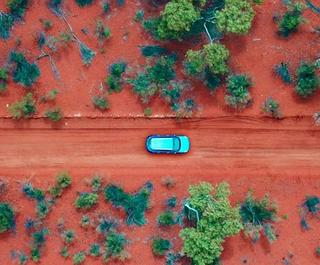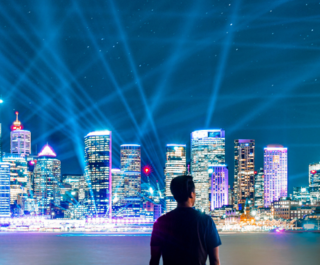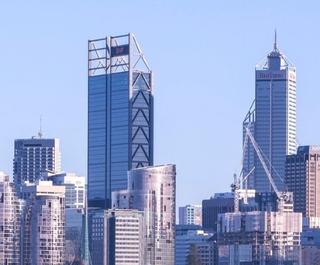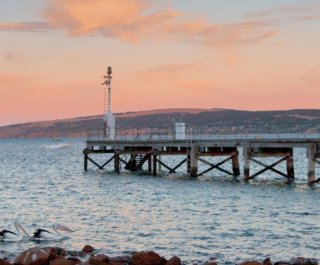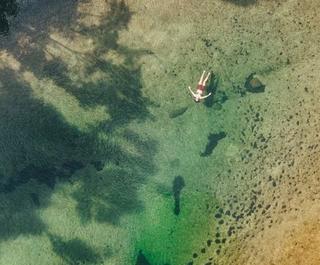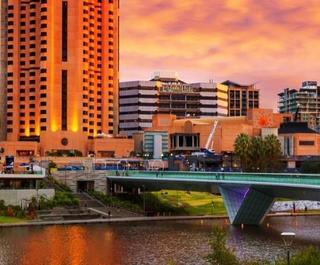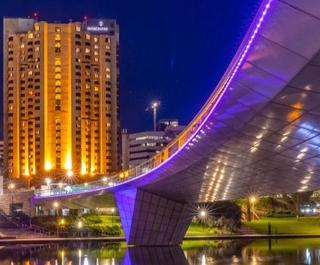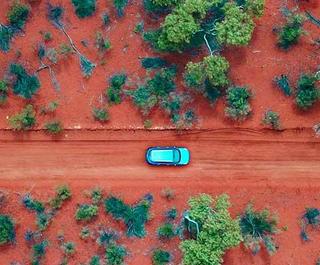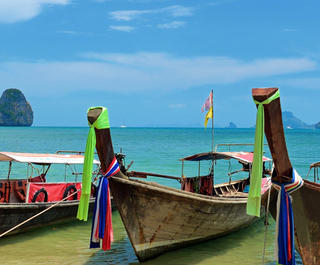
The Northern Territory is a magical place. Its landscapes vary greatly from the red centre to the tropical top end, then with the change of seasons, the same locations take on a completely new life. Capturing the energy, intense colours and peaceful beauty of the NT isn’t easy, but there are certain locations and things to remember, that will help you capture this truly awesome place.
Before you go, be wary that some sacred sites cannot be photographed. Commercial photographers are required to register for a permit at some sites, when you will be briefed on the locations of sacred sites and rules. Permits can be obtained from the National parks service. For amateur photographers, with no intention of selling the images or using them to promote a business, you can photograph freely.
When photographing the top end, remember that when humidity is high, keeping your equipment in the air conditioning will often cause it to fog up when you get outside, ruining your shots. So keep your equipment in the bathroom over night, so it stays relatively warm.
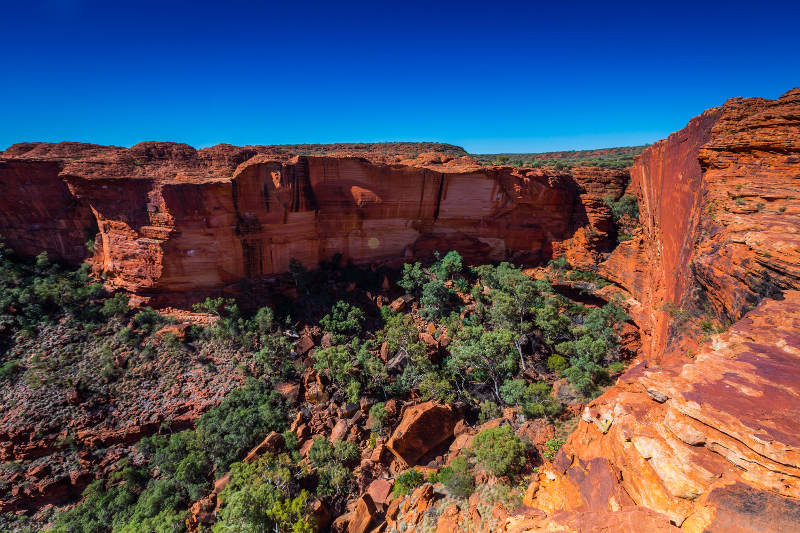 Even if you can't get to the rim walk for sunrise or sunset, Kings Canyon is a spectacular subject in full daylight. (Image: Getty)
Even if you can't get to the rim walk for sunrise or sunset, Kings Canyon is a spectacular subject in full daylight. (Image: Getty)Kings Canyon Rim Walk
The best time of year to photograph here is in the cooler months, as many of the tracks are closed in the scorching summer. The rim walk has many beautiful vantage points, best captured at sunrise or sunset, when the rocks glow a deep red. The first kilometre of the track provides a great vista of the canyon walls and the sandstone domes about halfway along the track glow beautifully at sunrise.
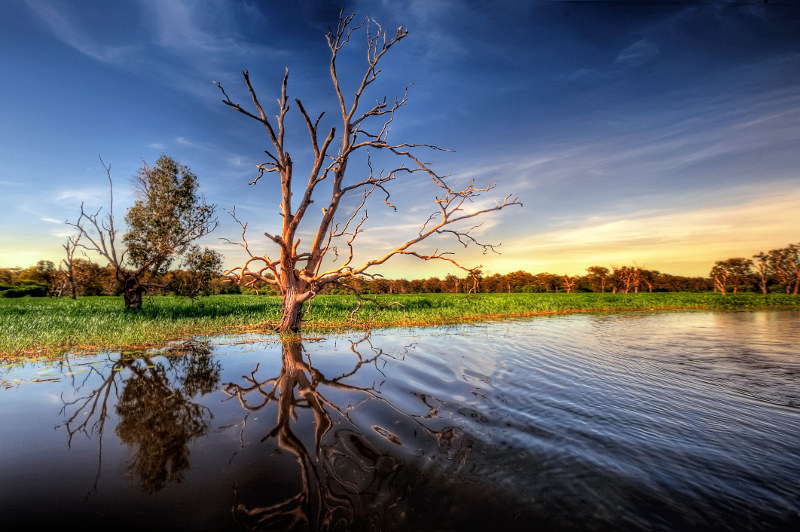 Yellow Waters offers plenty of different compositions for photographers, with or without the crocodiles. (Image: Getty)
Yellow Waters offers plenty of different compositions for photographers, with or without the crocodiles. (Image: Getty)Yellow Waters, Kakadu
If you can get here for sunrise, do it. Rent a tinny and head out into the water in time for the low light to create moody reflections in the still water. If you can get a crocodile in the foreground too, even better. The best time to visit is at the end of the dry season, when the area is abundant with wildlife, in particular birds, to photograph too. Hang around for sunset at Nawurlandja lookout. The sun will sink behind Nourlangie rock and the Kakadu Escarpment, which glows beautifully in the fading golden light.
Gunlom, Kakadu
Also in Kakadu, but worth a visit on its own, Waterfall Creek has a beautiful waterfall and plunge pool, a completely natural infinity pool, in fact. Take the steep, but short walking track to the top of the escarpment and you’ll find sweeping views over the clear rock pools and mountains beyond. Due to hot weather, most tourists walk this area in the early morning or evening, so capturing it without people can be challenging. That said, the compositions you can capture with the pools in the foreground and views behind are well worth the effort.
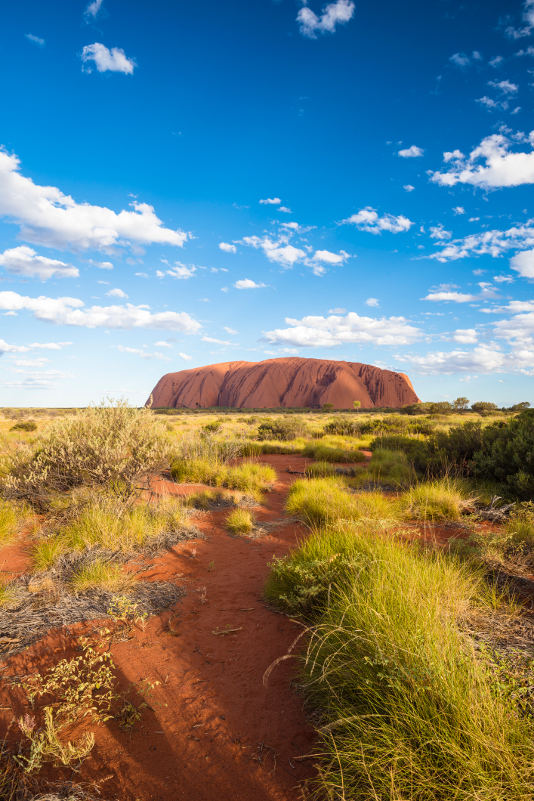 Finding unique angles at Uluru can be challenging thanks to the thick scrub. (Image: Getty)
Finding unique angles at Uluru can be challenging thanks to the thick scrub. (Image: Getty)Uluru
Due to its rich red colour this is of course best photographed at sunrise or sunset from one of the viewing platforms. These are positioned to capture the red glow as the first or last rays of light hit the rock. There are parts of Uluru that are culturally significant and cannot be photographed commercially, but most of these are obscured so general shots of the whole rock should be fine. To find more unique locations you’ll need to explore, however you’ll need to stick to the paths. Thanks to the landscape being quite scrubby, it can be difficult to find a suitable view of the rock, so give yourself sufficient time.
Kata Tjuta (The Olgas)
Equally as impressive as Uluru, Tata Kjuta can also be tricky to find unique vantage points as venturing off the marked paths is not allowed. That said, the viewing platforms offer impressive views and decent compositions and there are walking tracks you can use to find different angles. The Valley of the Winds walk is an excellent for unique views, however be wary of heavy photography restrictions in areas.
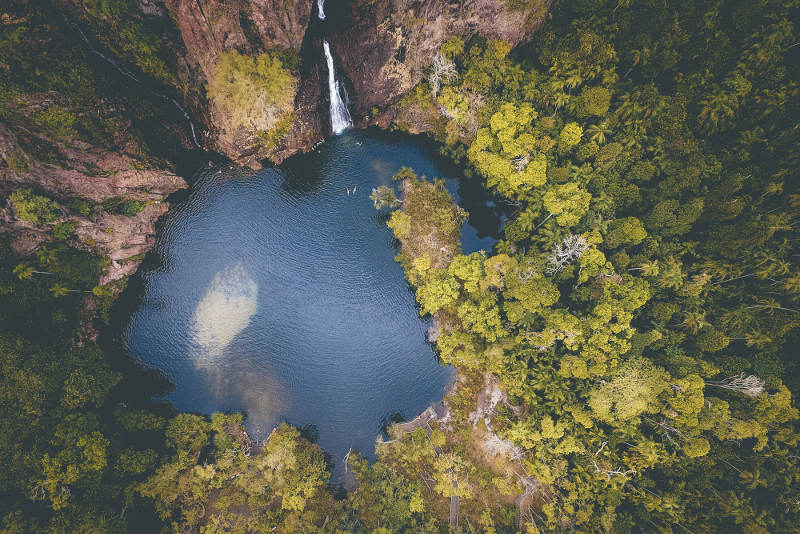 Wangi Falls in Litchfield National Park, from a different angle you don't see everyday. (Image: Getty)
Wangi Falls in Litchfield National Park, from a different angle you don't see everyday. (Image: Getty)From Above
The vast landscapes, intense colours and constant contrast make the NT the perfect place to photograph from the air. Plus overhead perspectives provide a different view of a location, making for unique photos. If you’re looking to cover a wide area in a short amount of time, a helicopter flight is the way to go. If you have time up your sleeve and access to a drone, this is also a great way to get shots of different locations. Be aware though that there are heavy restrictions in some areas for flying drones, so always check before launching it. When photographing from a helicopter be sure to maintain your camera settings so your shutter speed is fast. It might not feel like you’re travelling very fast from the air, but without a very fast shutter speed your images will end up blurred.
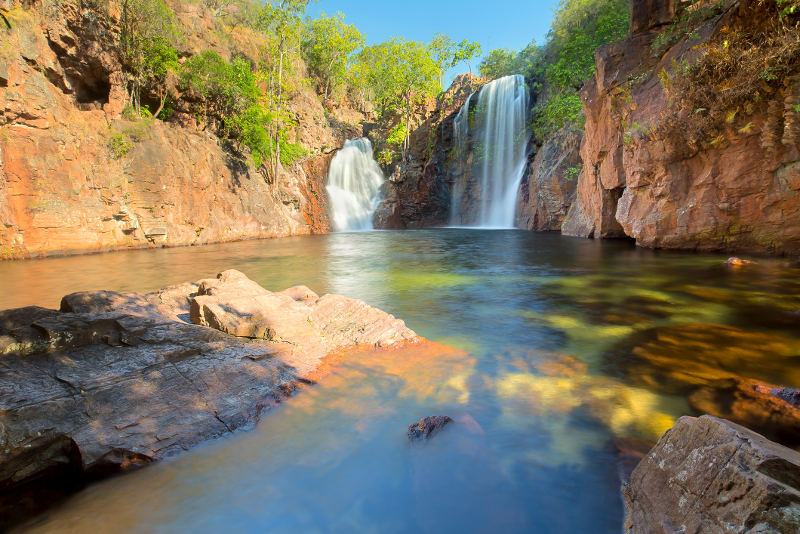 Florence Falls are one of many to photograph in Litchfield National Park. (Image: Getty)
Florence Falls are one of many to photograph in Litchfield National Park. (Image: Getty)Litchfield National Park
One of the most accessible national parks from Darwin, Litchfield has some stunning locations to photograph. Firstly, the Magnetic Termite Mounds, which are accessible with a 2WD, make for an interesting composition and contrasts at sunrise or sunset. Wangi Falls and Florence Falls, while popular with tourists, are fairly easy to photograph thanks to the large lagoons they flow into. As with all waterfalls in the Top End, these are most spectacular, and therefore best photographed, in the wet season.
Visit your local Flight Centre store or call 131 600 for more advice and the latest deals.

